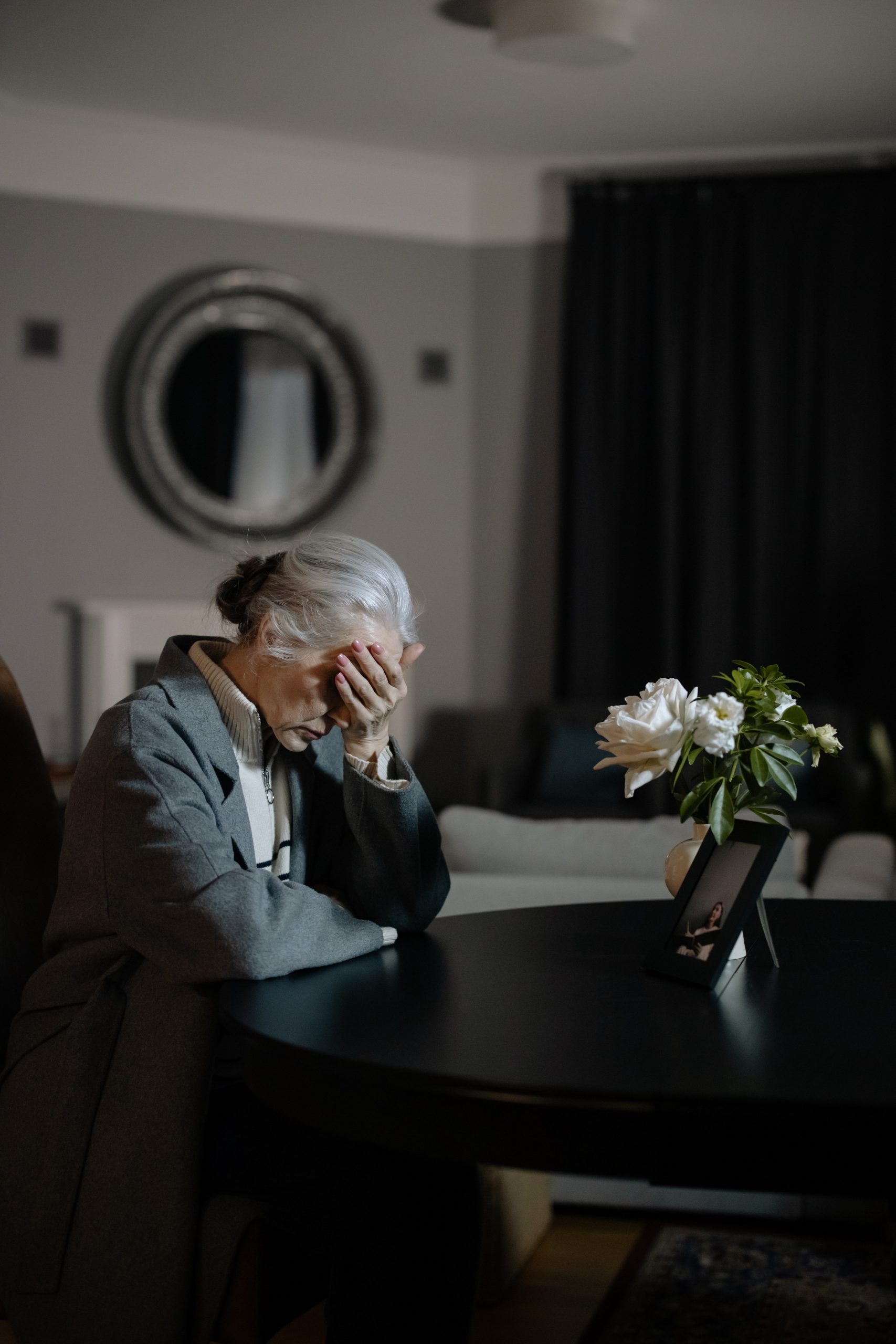TVP-Care networks with experts in other areas – both within healthcare and tangential to healthcare – that our families can access as part of the overall aging journey. Shlomo Silverstone, LCSW specializes in the mental health of individuals needing guidance during periods of transition, including the aging process.
As individuals age, they are often confronted with a myriad of losses that can profoundly impact their emotional well-being. Grief, a natural response to loss, manifests in various ways among the elderly population. This essay explores the multifaceted nature of grief experienced by the elderly, focusing on the loss of mobility, friends, autonomy, partnerships, roles within the family, and the often-overlooked secondary losses such as changing family dynamics, altered roles and tasks, disrupted rituals, and shifts in sexual intimacy.
Loss of Mobility
One of the most common challenges faced by the elderly is the loss of mobility. Physical limitations, chronic illnesses, and age-related conditions can restrict their ability to engage in activities they once enjoyed. The loss of independence, the freedom to move, and the resulting reliance on others can lead to feelings of frustration, helplessness, and grief. These individuals may mourn the loss of their previous active lifestyle and struggle to adapt to a new reality.
Loss of Friends
As people age, they often experience the loss of friends. The passing of companions who have shared a lifetime of memories can be deeply distressing. The elderly may find themselves confronted with a dwindling social circle, causing feelings of isolation and loneliness. The grief associated with the loss of friends can evoke a profound sense of nostalgia and lead to a reassessment of one’s own mortality.
Loss of Autonomy and Partnerships
With advancing age, the loss of autonomy becomes increasingly prevalent. This loss encompasses the ability to make decisions independently and carry out day-to-day tasks without assistance. The loss of autonomy can also extend to the erosion of partnerships, such as the death of a spouse or separation due to health issues. These losses can significantly impact the elderly, as they face challenges in maintaining their sense of identity and adjusting to a new way of life.
Loss of Roles within the Family
Elderly individuals often experience a shift in their roles within the family unit. As children grow older and pursue their own lives, the elderly may find themselves in a position where they are no longer primary caregivers or decision-makers. This loss of purpose and shifting family dynamics can lead to feelings of sadness and grief. It may require the elderly to redefine their roles and seek new sources of fulfillment and meaning.
Secondary Losses
In addition to the primary losses discussed, the elderly also encounter a range of secondary losses. These losses include changes in family dynamics, altered roles and tasks, disrupted rituals, and shifts in sexual intimacy. Changes in the family structure, such as the loss of a child or a divorce within the family, can compound the grieving process for the elderly. The loss of familiar roles and responsibilities, such as no longer being the family provider or the matriarch/patriarch, can contribute to a sense of displacement and grief. Additionally, changes in rituals and traditions, such as holidays or family gatherings, can serve as painful reminders of those who are no longer present. Furthermore, the impact of aging on sexual intimacy and the loss of sexual partners or capabilities can result in feelings of loss, grief, and a reevaluation of one’s self-worth.
Coping with Grief
While grief is an inherent part of the human experience, it is essential to recognize and support the elderly in their grieving process. Providing empathy, understanding, and companionship can significantly alleviate the burden of grief. Encouraging open communication, facilitating participation in support groups or therapy, and promoting activities that foster a sense of purpose and connection are crucial steps in helping the elderly navigate their losses and adapt to new realities.
Conclusion
The elderly face a unique set of challenges when it comes to grief, as they encounter various losses that can significantly impact their well-being. Acknowledging the losses experienced by the elderly, such as the loss of mobility, friends, autonomy, partnerships, roles within the family, and the often-overlooked secondary losses, is essential in providing them with the support and compassion they need. By understanding and addressing the multifaceted nature of grief in later life, we can contribute to the emotional well-being and quality of life of our elderly population.
Written by Shlomo D. Silverstone, LCSW and Certified Grief Counselor.
TVP-Care is accepting new patients, and we take Medicare and private insurance. Schedule an appointment with one of our home-based primary care providers by calling 800-233-3407.














